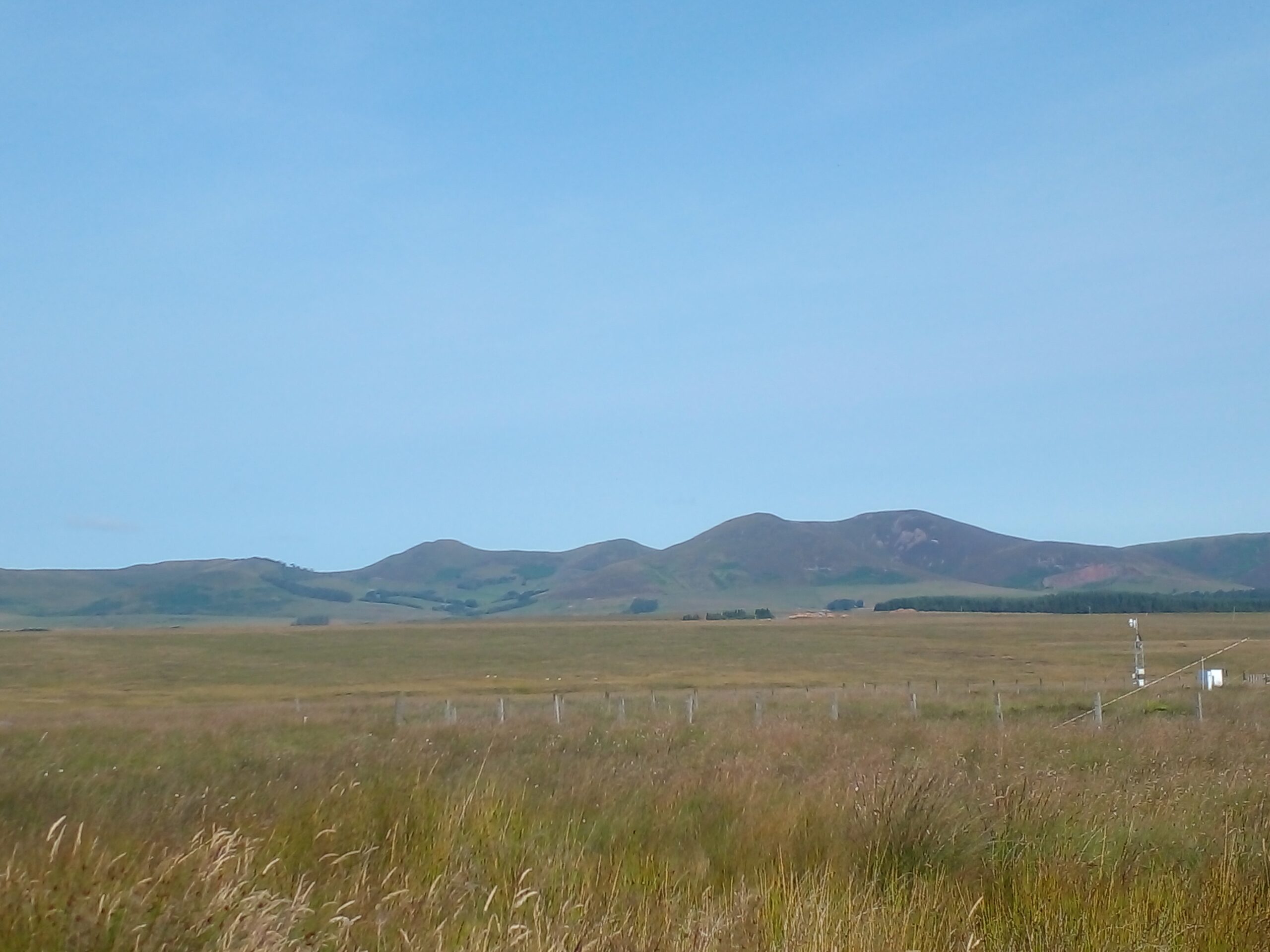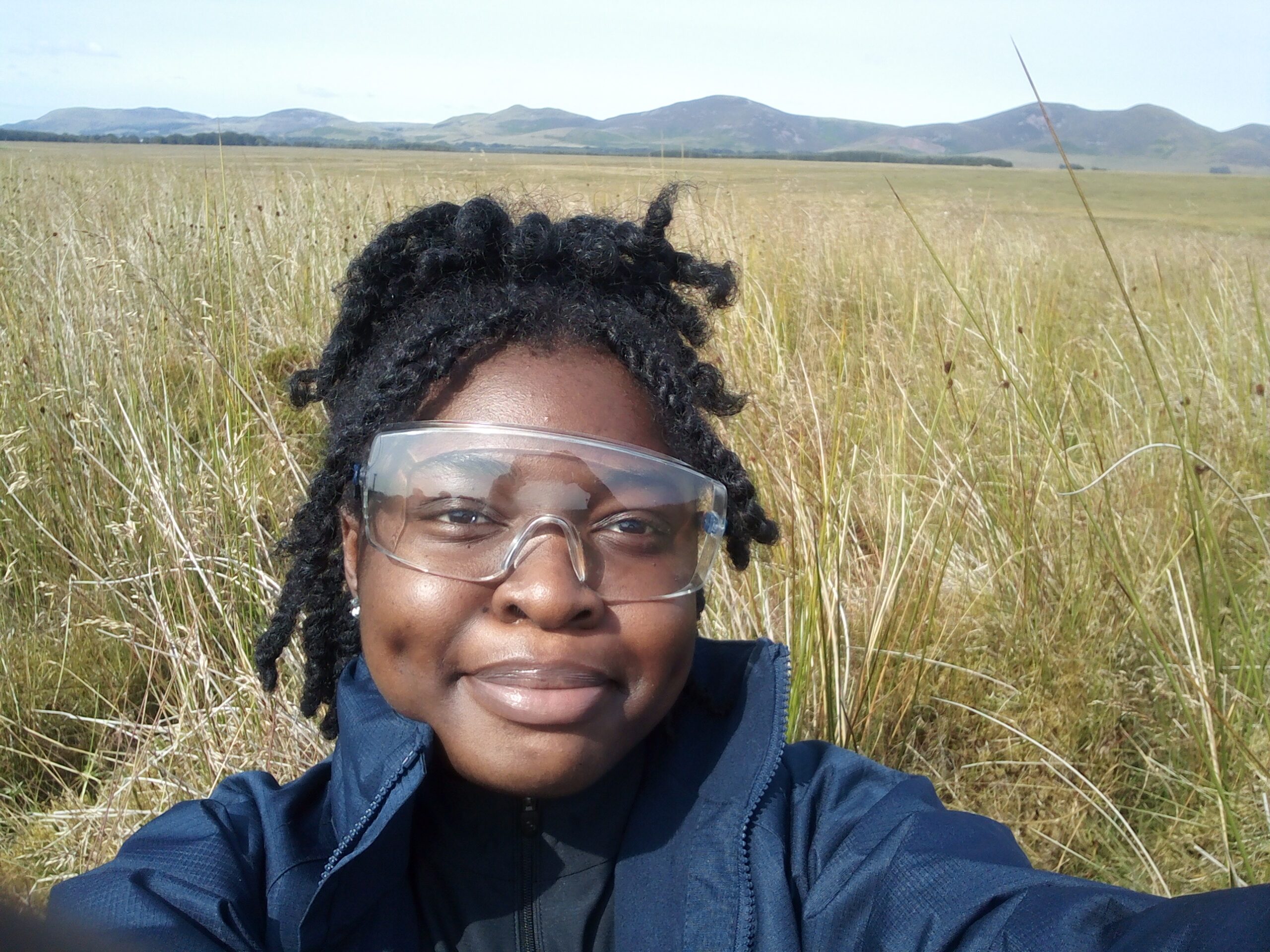Author: Temitope Awonusi, BEng Chemical Engineering, University of Aberdeen
Project Title: Unveiling CO2 Emissions from Cropland Soils: Exploring Climate Change Impacts
Supervisors: Mohamed Abdalla
I worked on the project: “Unveiling CO2 Emissions from Cropland Soils: Exploring Climate Change Impacts” supervised by Mohamed Abdalla, University of Aberdeen, School of Biological Sciences. Over nine weeks, I worked with a team of incredible and supportive people including Dr Mohamed Abdalla (my supervisor), Heyu Chen (my PhD mentor) and Osato Daniel (another placement student). The primary software I used in my project was DNDC (Denitrification-Decomposition Model) which is designed to predict crop growth, soil temperature and trace gas emissions. Initially, I was unfamiliar with the software and became proficient in using it within two weeks, thanks to the help of my supervisor who gave me a detailed explanation of how it works.
I applied this software model, along with existing data on soil properties, climate conditions, and land management practices, to simulate CO2 emissions, soil temperature and moisture from soils under different scenarios – conventional and reduced tillage – which differ by the presence of cover crop and ploughing methods. Additionally, I conducted a comprehensive literature review to identify the simulation parameters to input into the model, with guidance from my PhD mentor. I also studied the impact of soil type, land use, and management practices on CO2 emissions. To present my findings, I used graphical and statistical analyses to simplify my results and provide insights into the effects of the two tillage methods on CO2 emissions, soil temperature and moisture.
One highlight of my placement was my first-ever visit to Edinburgh, which I experienced during a field trip with Liam Thompson (field trip supervisor) and Osato Daniel. Before the trip, I completed an extensive risk assessment with Dr. Dawn Shewring (Technical Resource Officer and Health & Safety Coordinator) to ensure I was prepared for potential risks, as safety is of utmost importance. I also received comprehensive training from Liam Thompson on handling the equipment required for soil data collection and analysis in preparation for our trip to Penicuick, Edinburgh.
Edinburgh is a beautiful city, and seeing the hills made me appreciate nature’s beauty. I took many lovely pictures of the scenery—and of myself, of course! Overall, the field trip was both adventurous and a valuable learning experience for me.
In summary, I am extremely grateful for the immense support and guidance provided to me. Throughout my placement, I significantly improved my software skills, data analysis skills, and research skills. Overall, the REP scheme provided an opportunity to work on a project outside my discipline, which has made me interested in pursuing a career in environmental science.























































